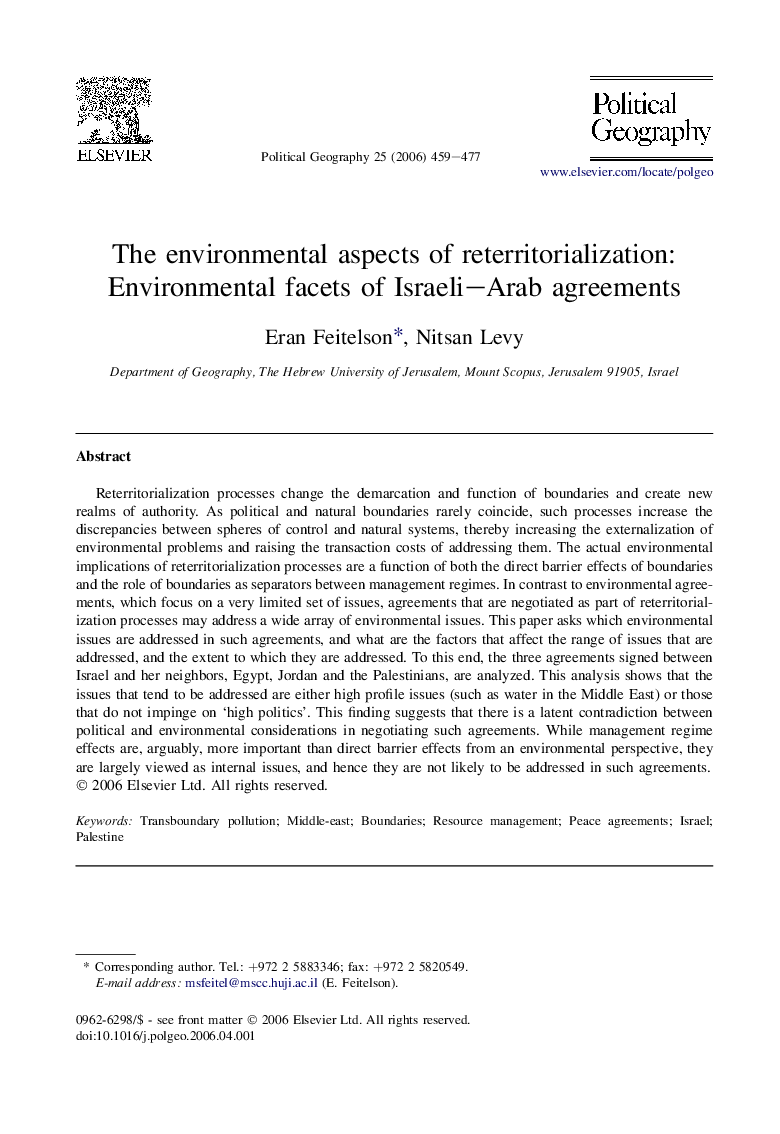| Article ID | Journal | Published Year | Pages | File Type |
|---|---|---|---|---|
| 1062447 | Political Geography | 2006 | 19 Pages |
Reterritorialization processes change the demarcation and function of boundaries and create new realms of authority. As political and natural boundaries rarely coincide, such processes increase the discrepancies between spheres of control and natural systems, thereby increasing the externalization of environmental problems and raising the transaction costs of addressing them. The actual environmental implications of reterritorialization processes are a function of both the direct barrier effects of boundaries and the role of boundaries as separators between management regimes. In contrast to environmental agreements, which focus on a very limited set of issues, agreements that are negotiated as part of reterritorialization processes may address a wide array of environmental issues. This paper asks which environmental issues are addressed in such agreements, and what are the factors that affect the range of issues that are addressed, and the extent to which they are addressed. To this end, the three agreements signed between Israel and her neighbors, Egypt, Jordan and the Palestinians, are analyzed. This analysis shows that the issues that tend to be addressed are either high profile issues (such as water in the Middle East) or those that do not impinge on ‘high politics’. This finding suggests that there is a latent contradiction between political and environmental considerations in negotiating such agreements. While management regime effects are, arguably, more important than direct barrier effects from an environmental perspective, they are largely viewed as internal issues, and hence they are not likely to be addressed in such agreements.
